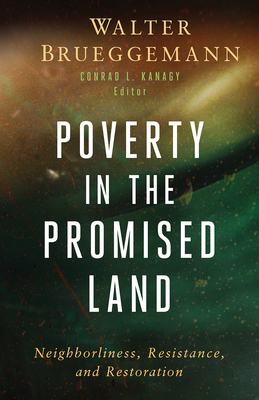
Brueggemann, Walter
product information
description
nce of the structural and systemic factors that have long been part of the story of poverty. The people of God have often denied such structural claims in favor of the belief that individuals are poor because of personal choice. This absolves the social institutions of society, including the church, from responsibility to address these structural forces, including within the church itself. Charity and benevolence become the antidote for such a diagnosis of poverty, rather than the deeply rooted change that God intended for the Year of Jubilee and that the early church reflected. This book supports the biblical mandate of neighborliness as both a personal and a corporate response to systemic poverty, a mandate that is the second of the two great commandments.
member goods
No member items were found under this heading.
listens & views

DIAMOND JUBILEE: SONGS BY DAVID ...
by DIAMOND / WILLIAMS / LEHRMAN
COMPACT DISCout of stock
$14.75
Return Policy
All sales are final
Shipping
No special shipping considerations available.
Shipping fees determined at checkout.






